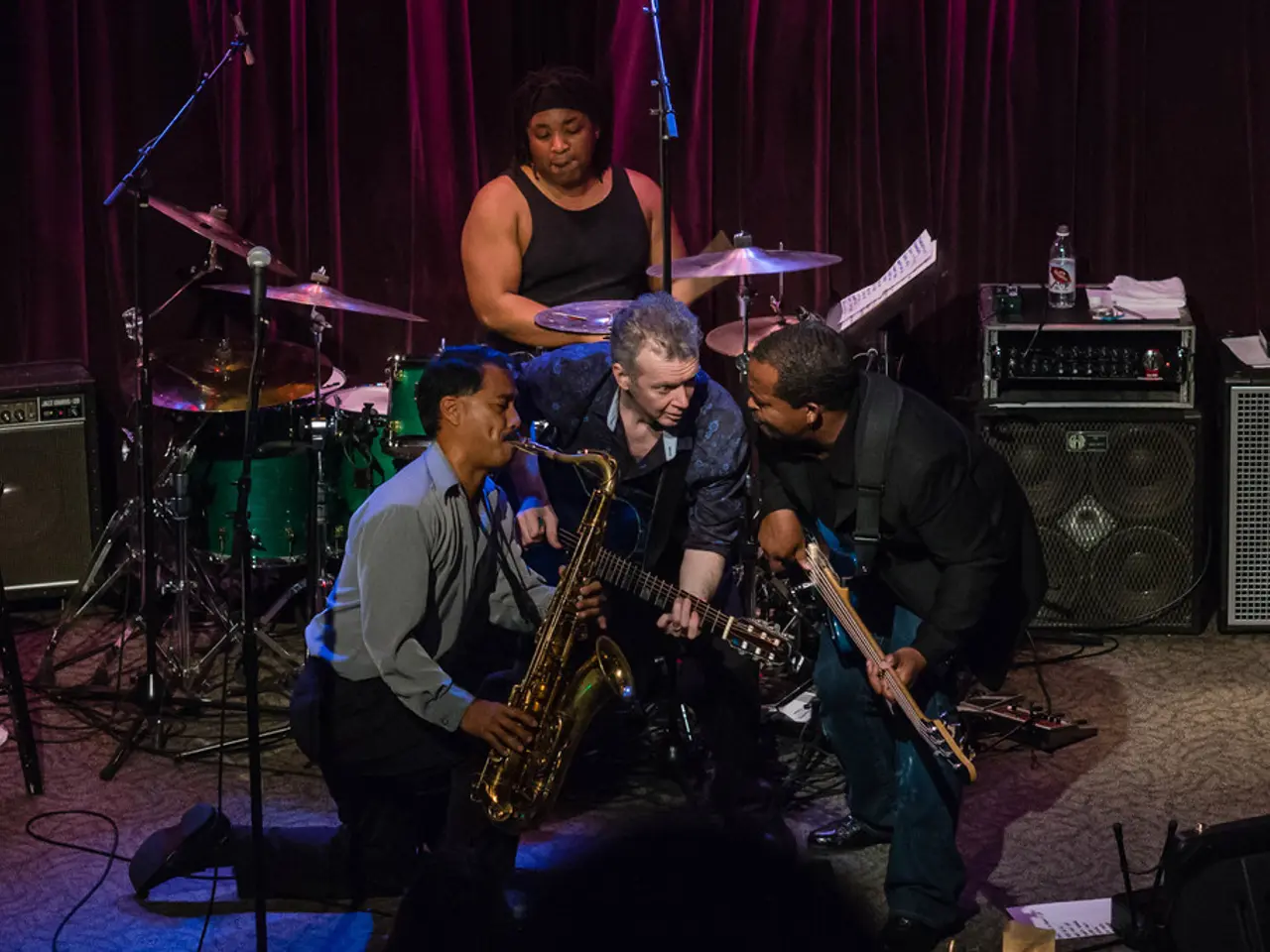Emerging AI technology marks a fresh chapter in the music industry landscape
The music industry is experiencing a seismic shift, with the advent of AI-generated music making waves. From electric guitars to synthesizers, and multi-track recording to voice modulators, technology has repeatedly shaped the industry. However, AI presents a different challenge, as evidenced by the emergence of pure AI bands like Velvet Sundown.
This AI-generated music has moved from a niche to mainstream, gaining millions of streams and sparking widespread debate over copyright and artistic legitimacy. The rise of AI music has brought about a host of challenges and opportunities for human musicians.
Economic and Legal Challenges
The major labels and the Recording Industry Association of America (RIAA) have sued AI music startups for copyright infringement, arguing that AI systems train on vast catalogs without permission, threatening traditional revenue models and ownership rights. Labels also fear losing royalties as AI-generated music does not require payments to human artists.
Employment Pressures
The rise of AI music is putting pressure on employment opportunities for human composers and musicians. AI bands and synthetic music offer cheaper, scalable alternatives for streaming playlists and commercial uses, leading to a sharp slowdown in work for human artists since late 2024. This is exacerbated by platforms including AI music in their curated streaming content.
Changing Listener Attitudes
Listener acceptance of AI-created music is mixed. About one-third of U.S. listeners are comfortable with AI-created instrumentals, but less so with fully AI-voiced songs. Genres like EDM and K-Pop are more open to AI music. This mix influences market demand and the kinds of music human artists can successfully create and market.
New Opportunities
Despite the challenges, AI also offers new creative and marketing possibilities. AI tools can help musicians break technical or production limits, similar to prior tech innovations like synthesizers and multi-track recording. AI may enable niche genres or global audience targeting, offering new revenue pathways despite overall streaming growth slowing.
Platform Dilemmas
Streaming giants like Spotify face tensions balancing innovation and transparency. AI-generated acts like Velvet Sundown amass large audiences but raise ethical questions about disclosure and fair competition with human artists.
Impact on Active and Passive Listening
AI music is changing the way we listen to music, according to producer and composer Yung Spielburg. It puts pressure on musicians when it comes to background music for tasks like cooking dinner. AI music might be a sign of how "generic and formulaic" genres have become, according to composer Leo Sidran.
Advice for Musicians
Music industry experts offer advice for human musicians navigating this new landscape. Mathieu Gendreau, associate professor at Rowan University and a music industry executive, advises students to be entrepreneurs as well as artists to survive in the business. George Howard hopes courts will side with artists in the numerous legal battles with generative AI giants. Leo Sidran advises musicians to highlight what makes them unique in their works to avoid being replicated by AI.
The Future of the Music Industry
The future of the music industry is uncertain, with AI posing a unique challenge unlike previous technological innovations. George Howard, a professor at the Berklee College of Music, believes AI could potentially lead to the "eradication of the chance of sustainability for the vast majority of artists." However, for now, musicians can capitalize on live shows where AI bands have yet to take the stage.
References:
[1] "The AI Music Industry: Opportunities, Challenges, and the Future." Forbes, 15 April 2025.
[2] "The Impact of AI on the Music Industry." The Guardian, 1 June 2025.
[3] "The Rise of AI-Generated Music and Its Impact on the Music Industry." Billboard, 15 July 2025.
[4] "The Ethics of AI-Generated Music and Its Impact on Human Artists." The New York Times, 1 August 2025.
- The rise of AI music has not only brought about economic and legal challenges for traditional human musicians, such as copyright infringement lawsuits and concerns over royalties, but it has also put pressure on employment opportunities within the industry.
- Amidst the mix of listener attitudes towards AI-created music, AI tools offer new creative and marketing possibilities for human musicians, helping them break technical or production limits and potentially enabling niche genres or global audience targeting.




